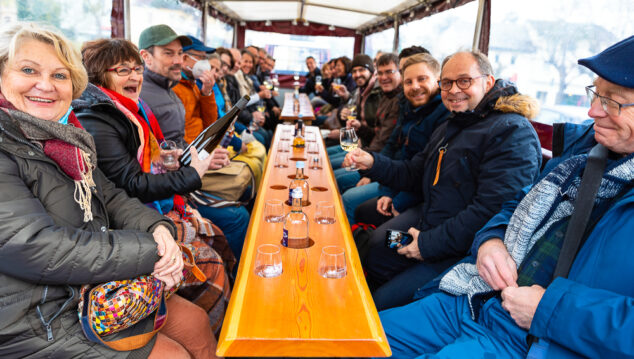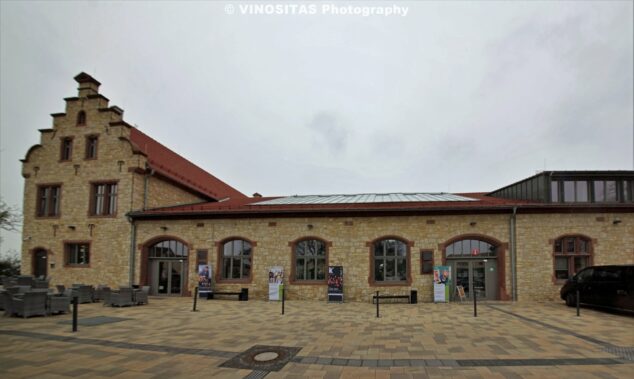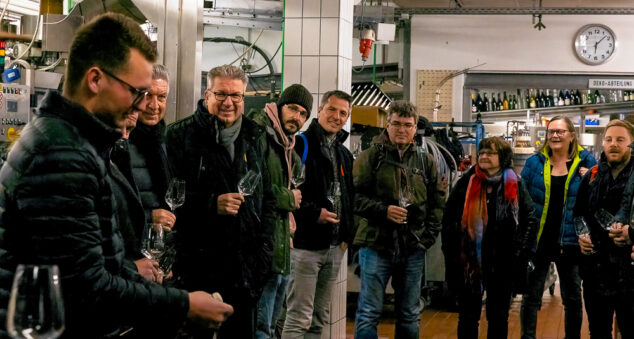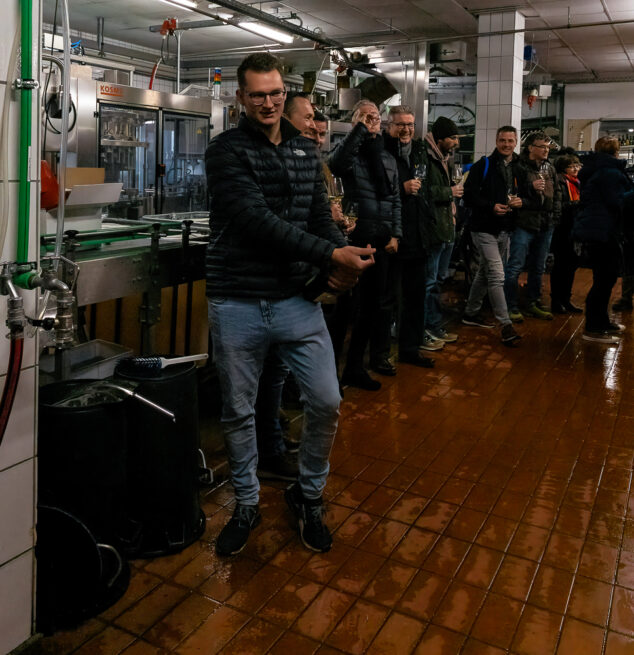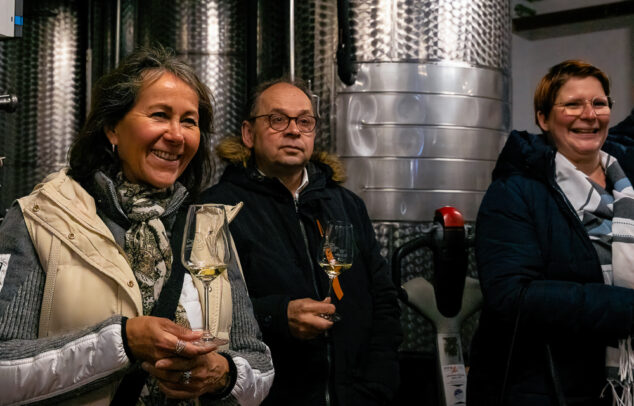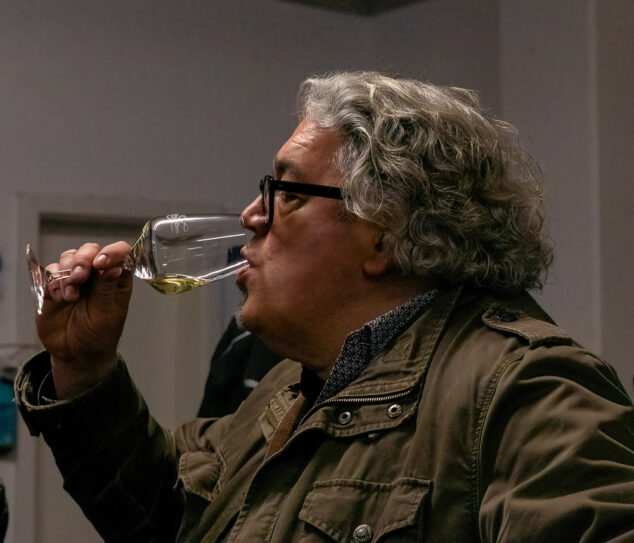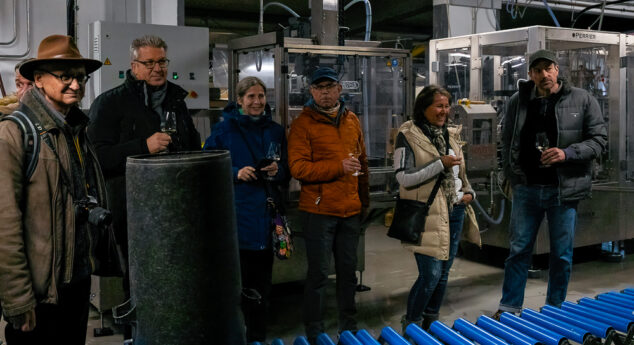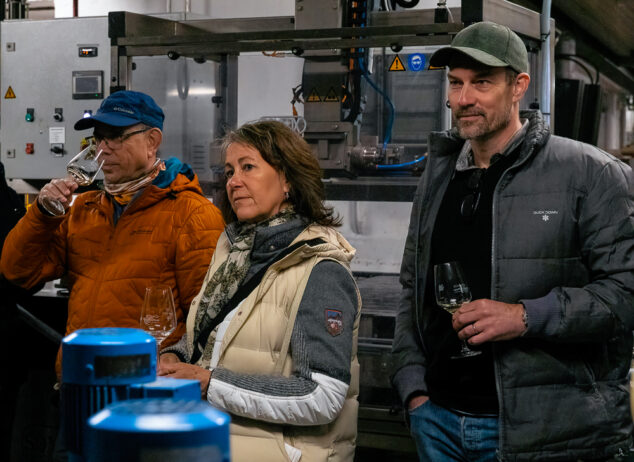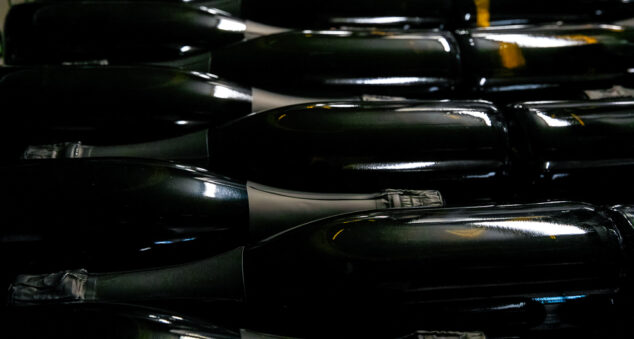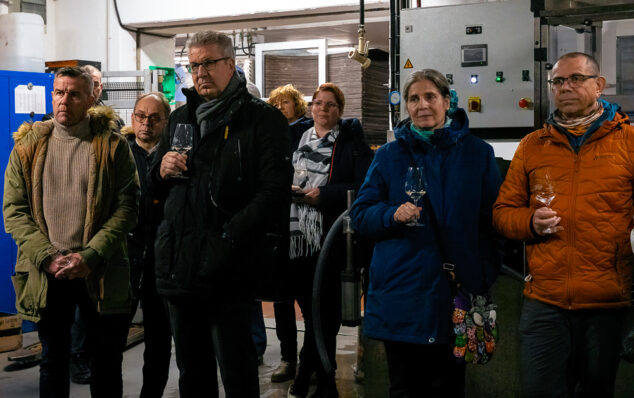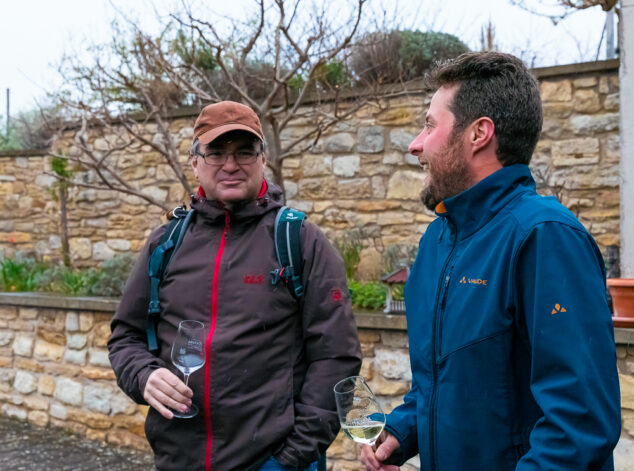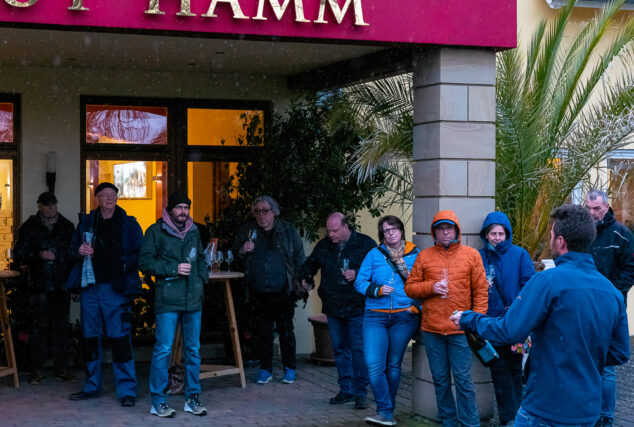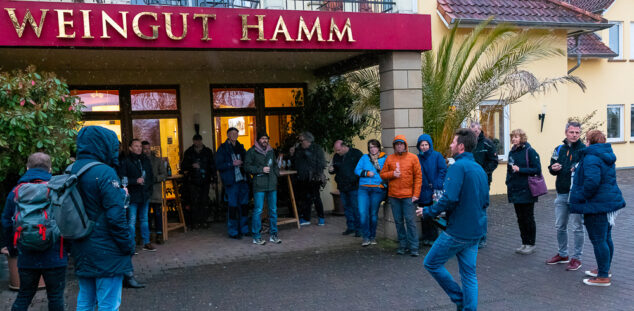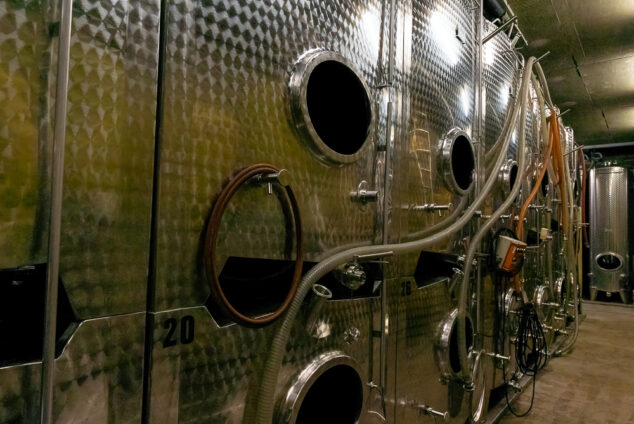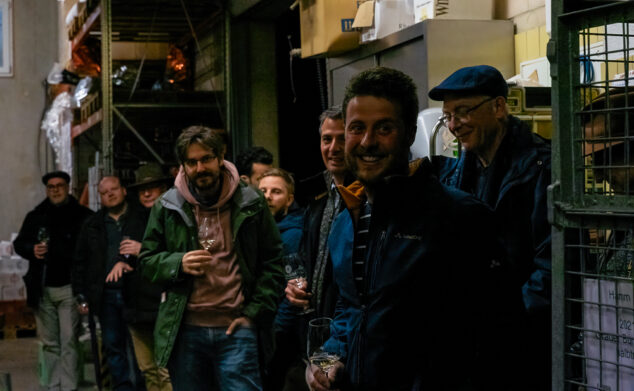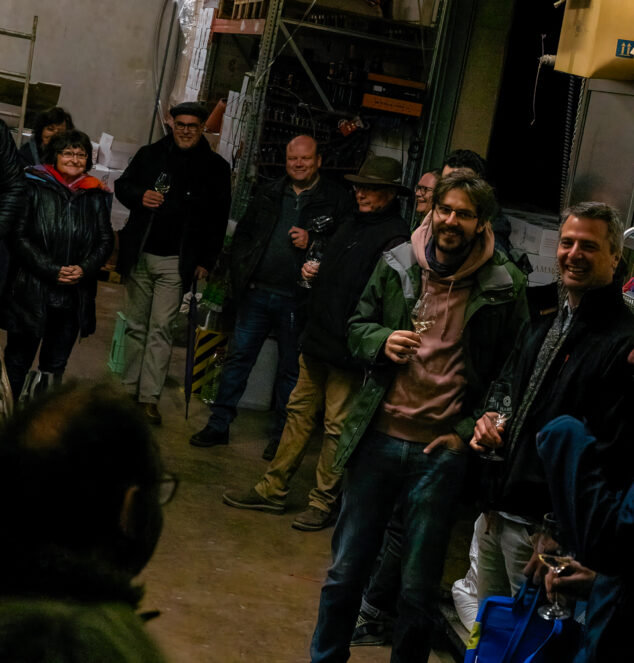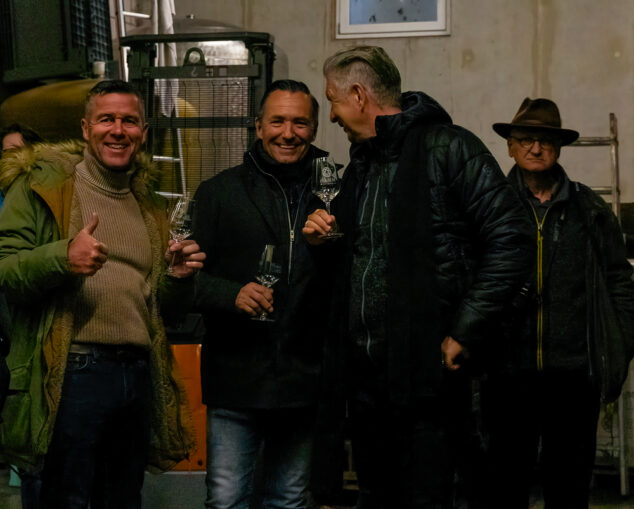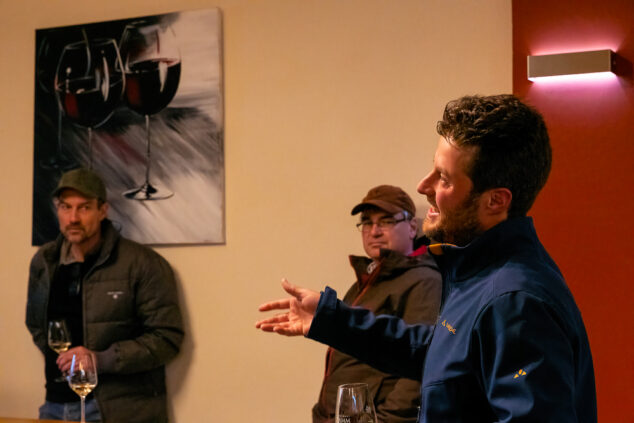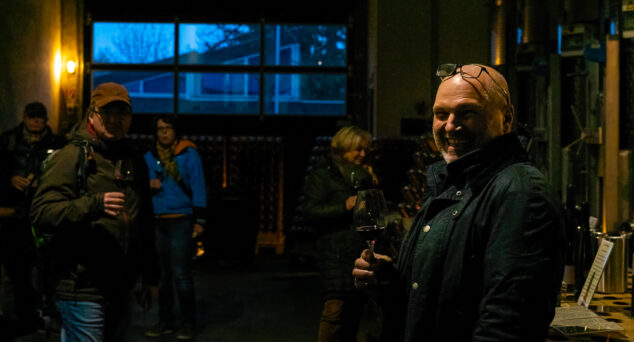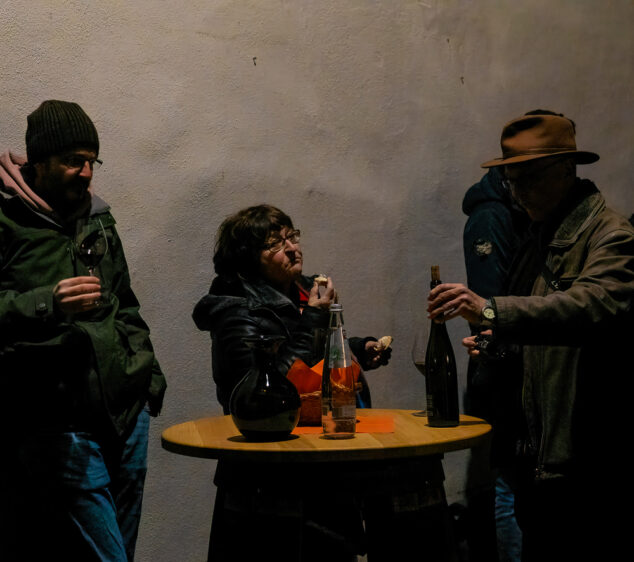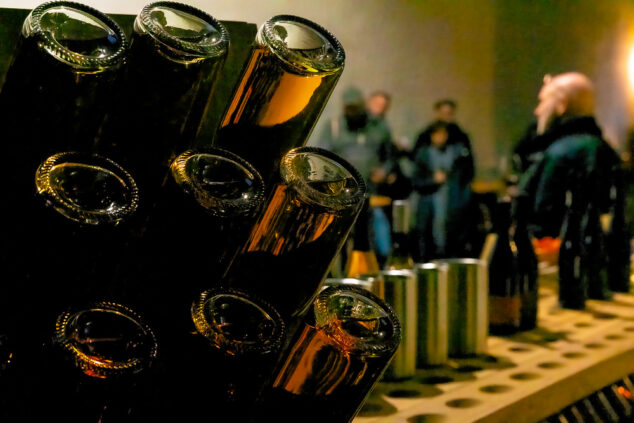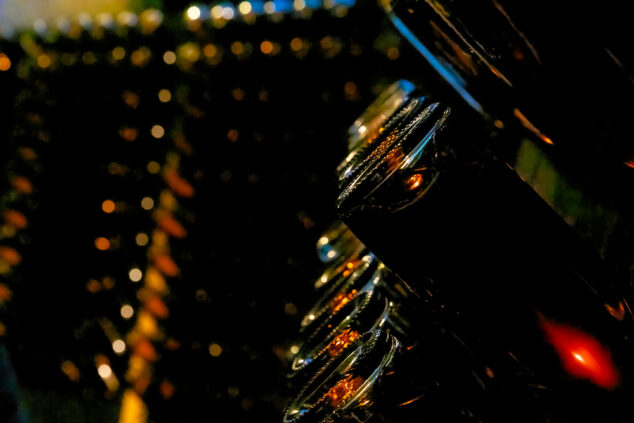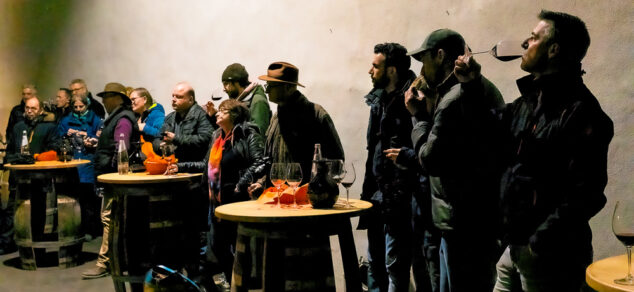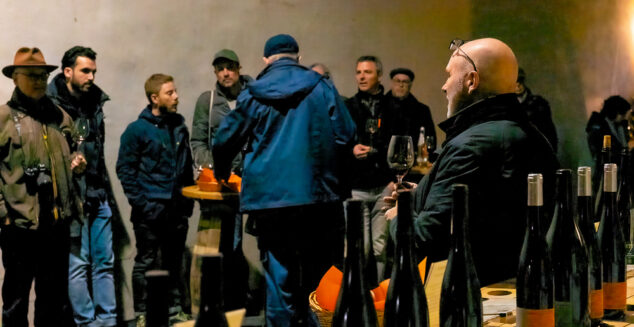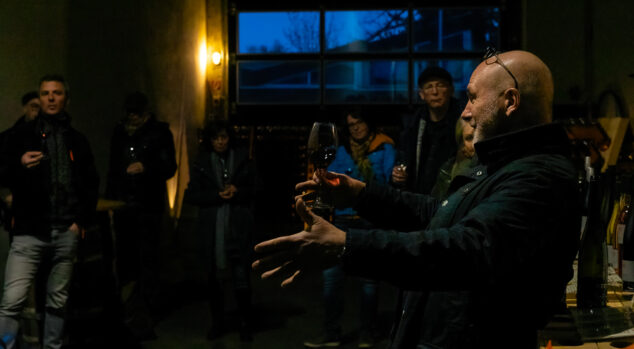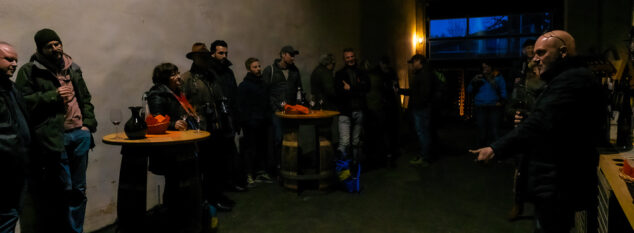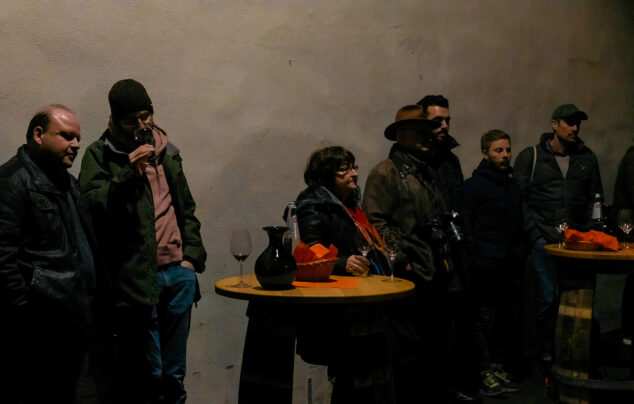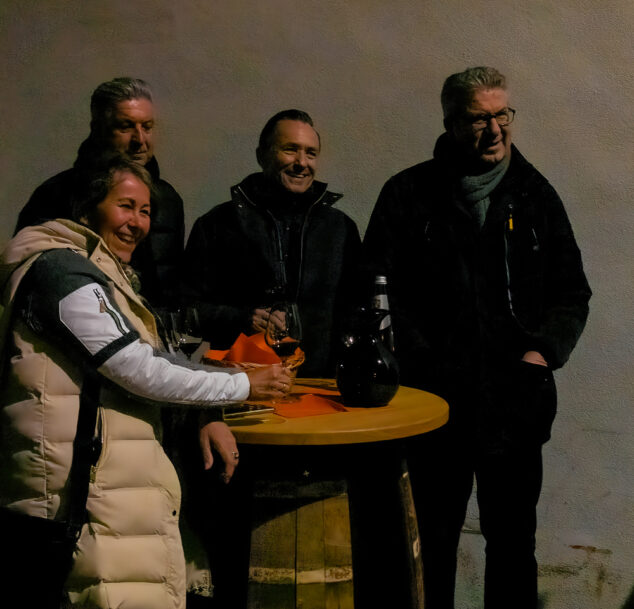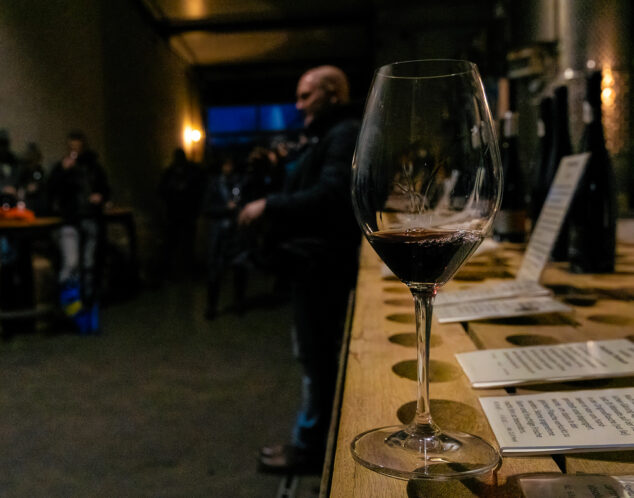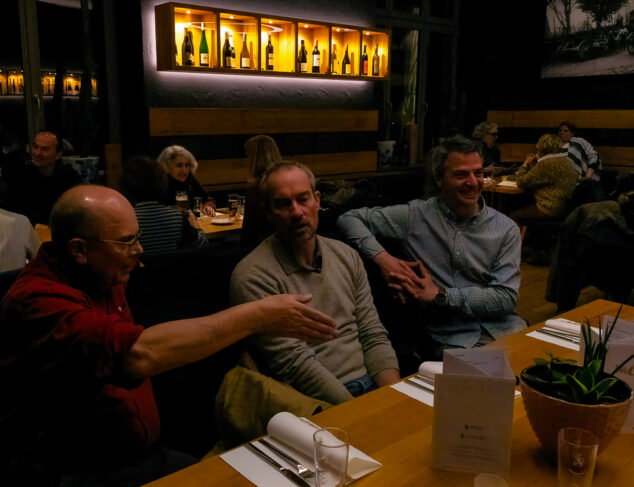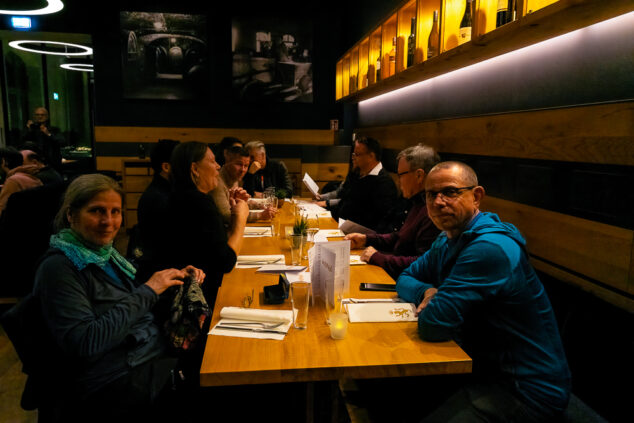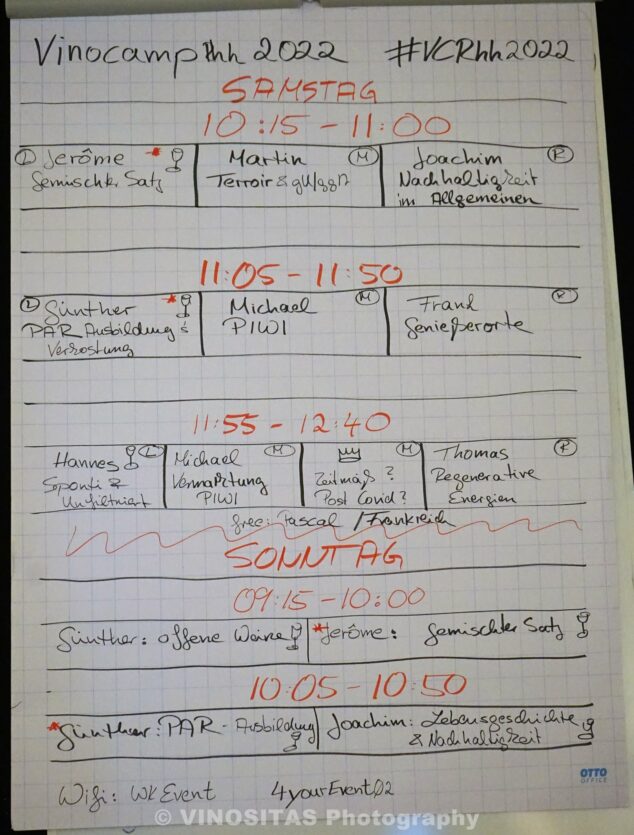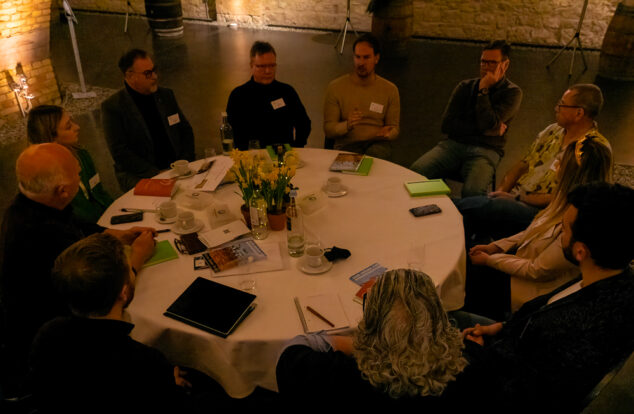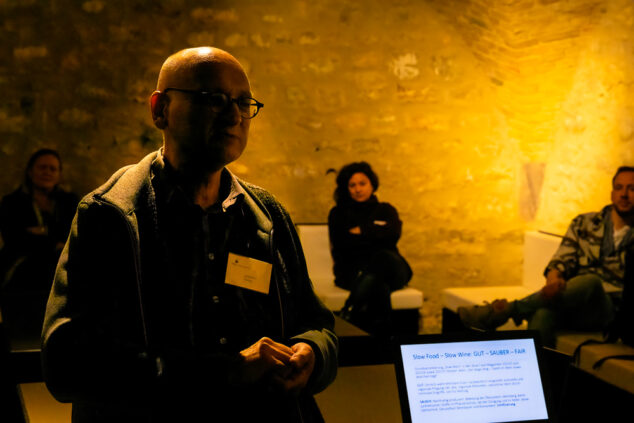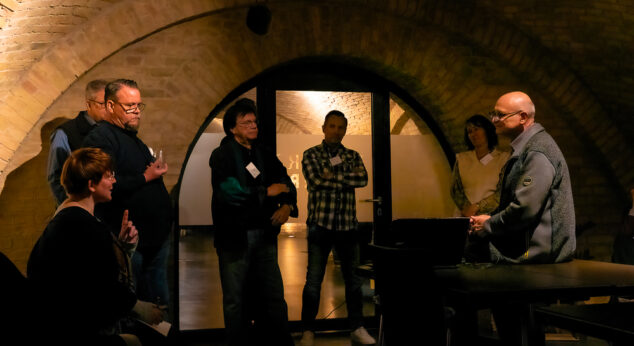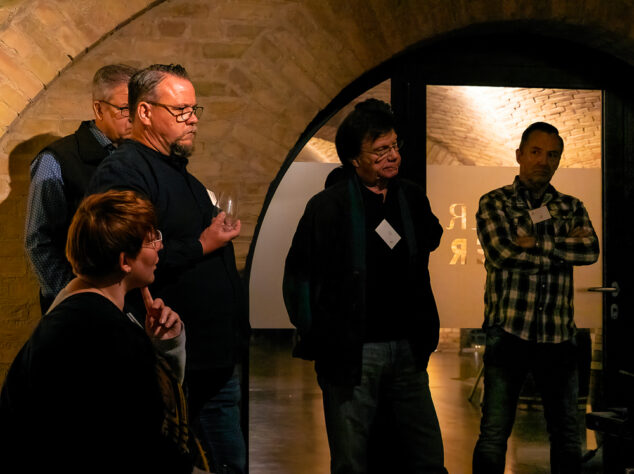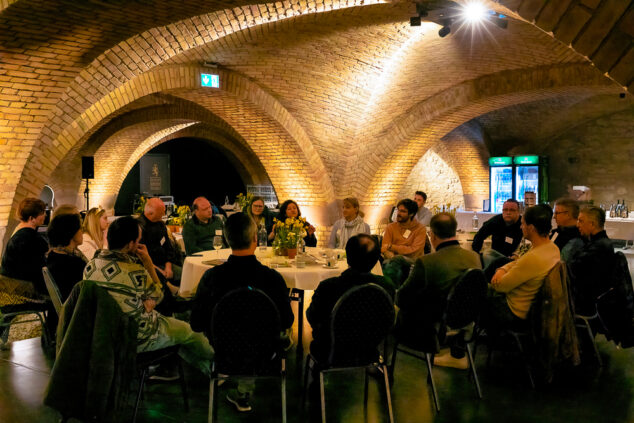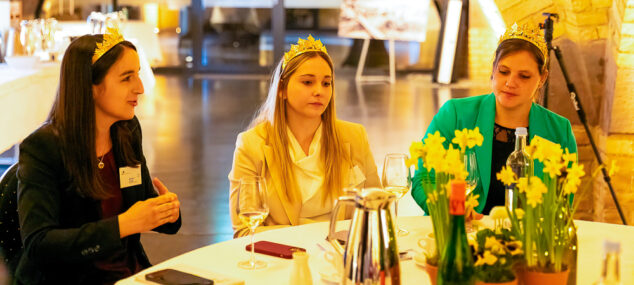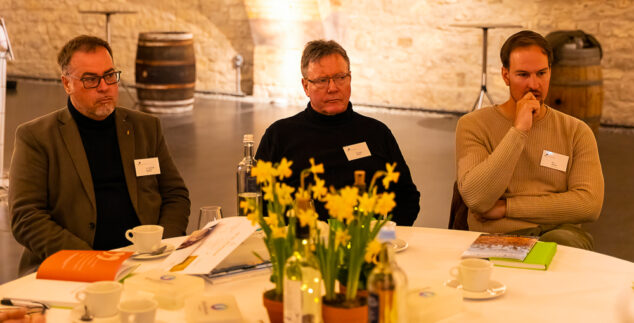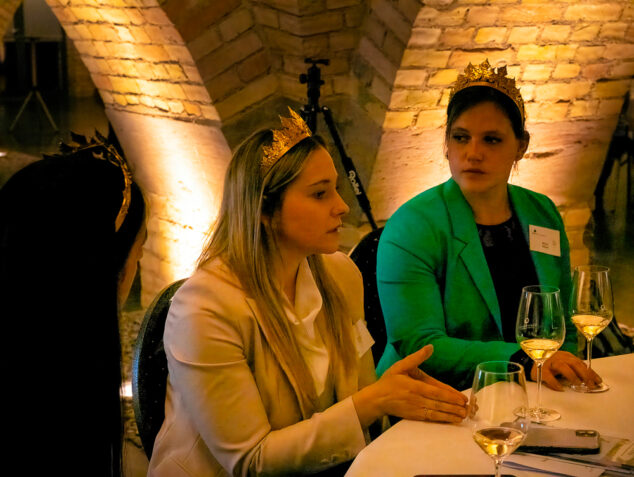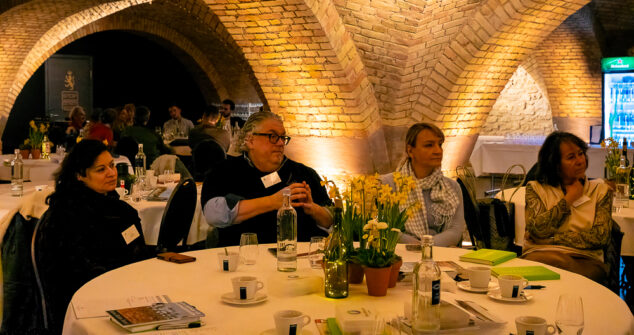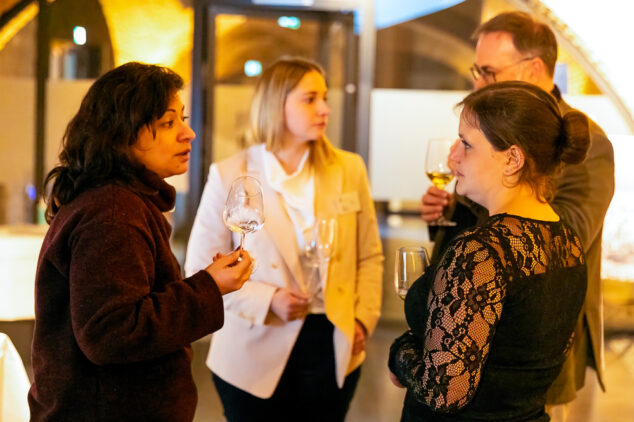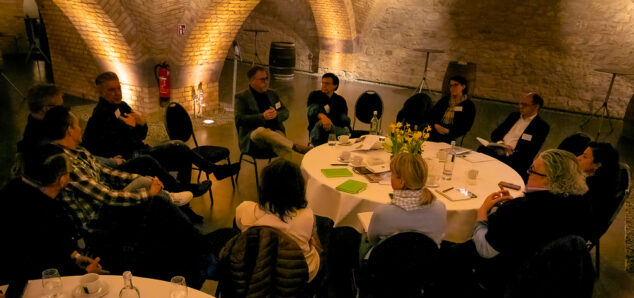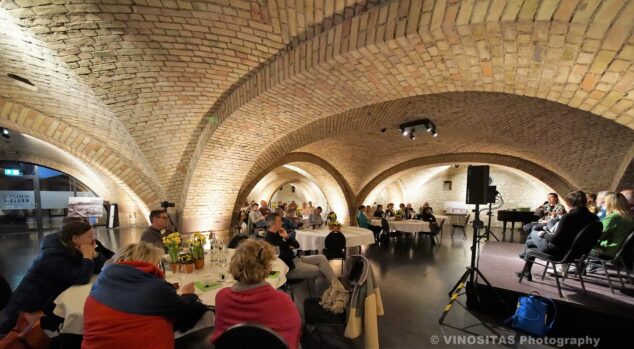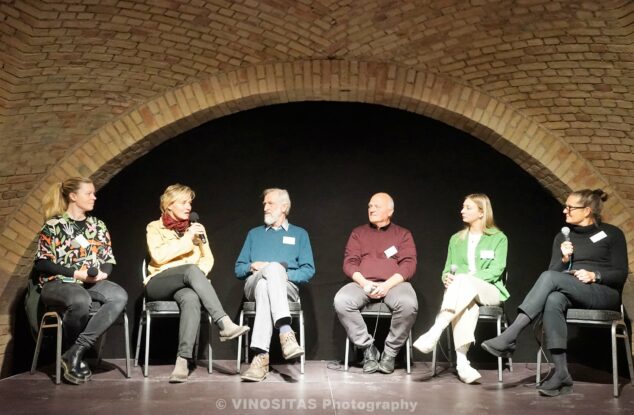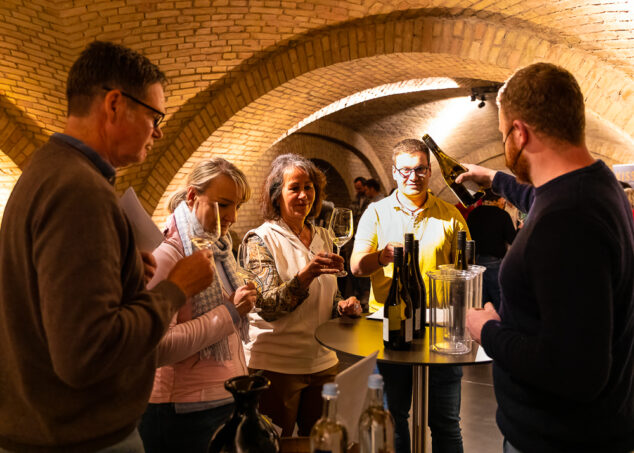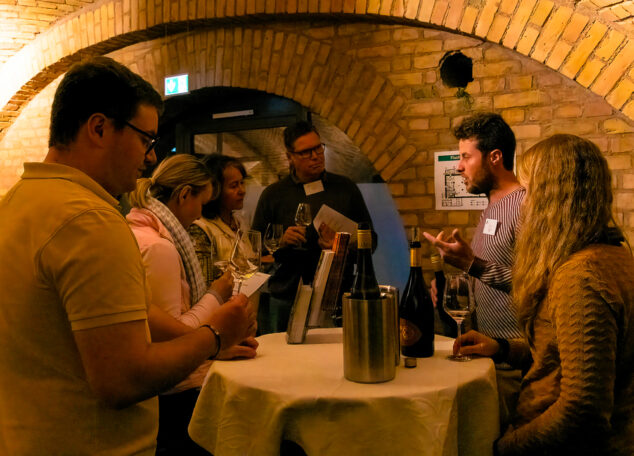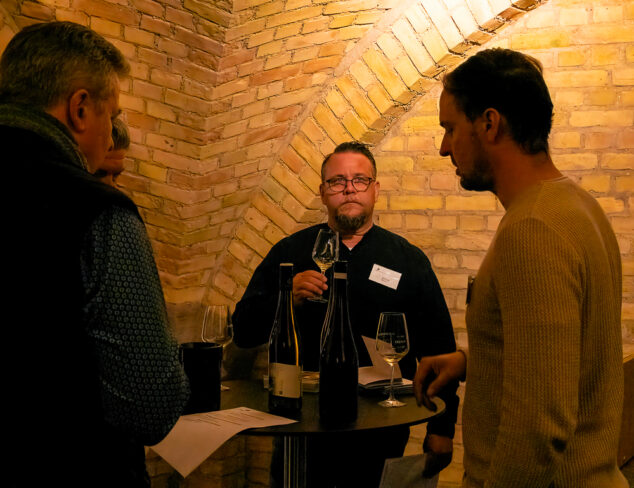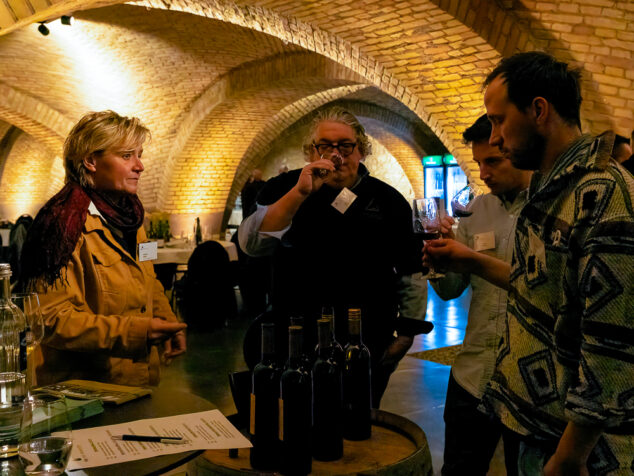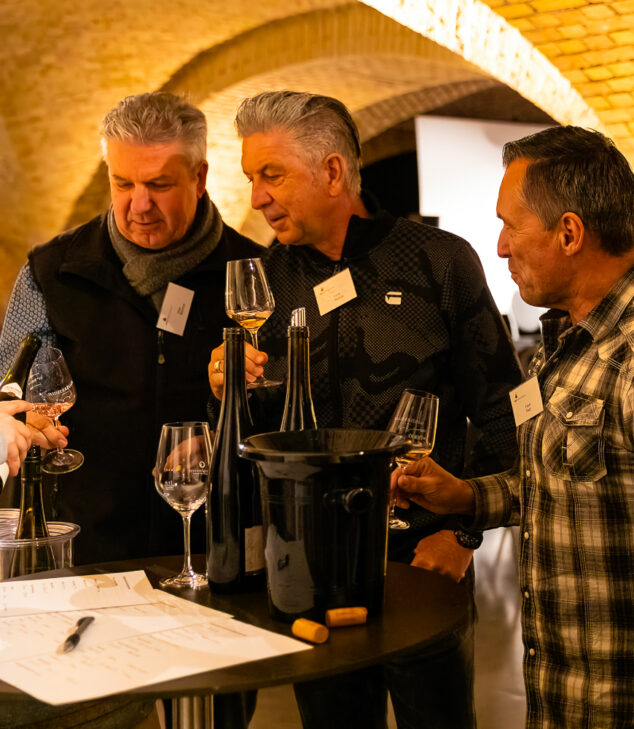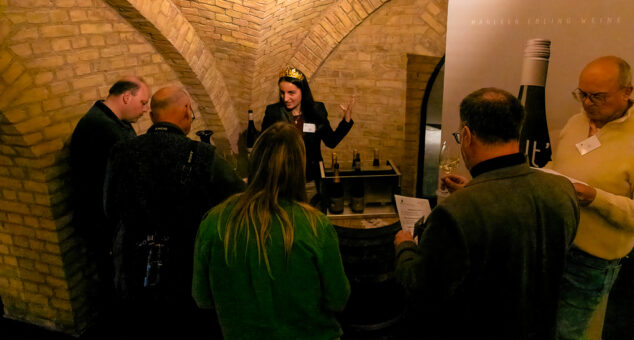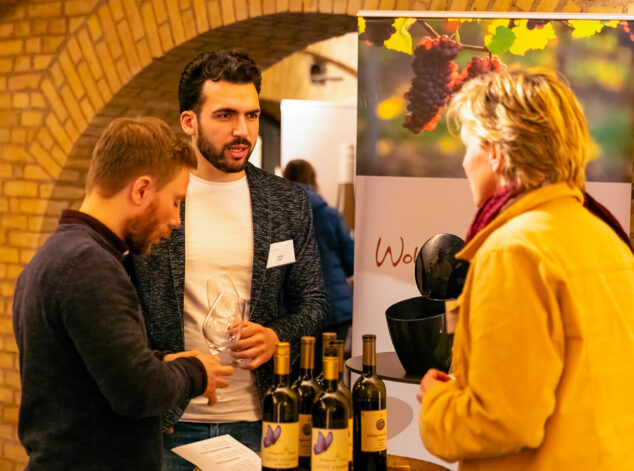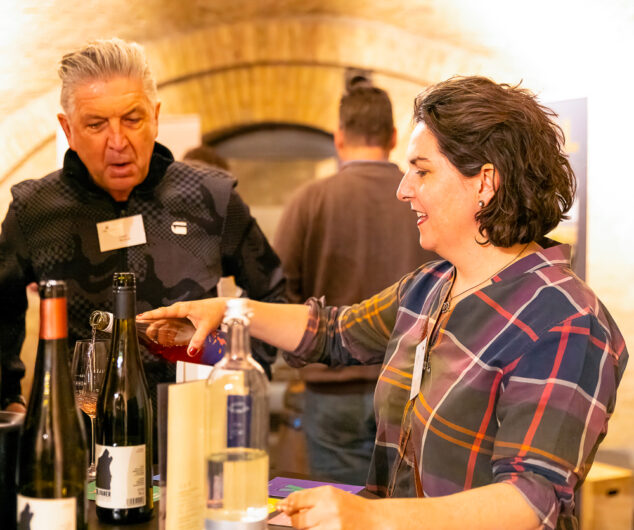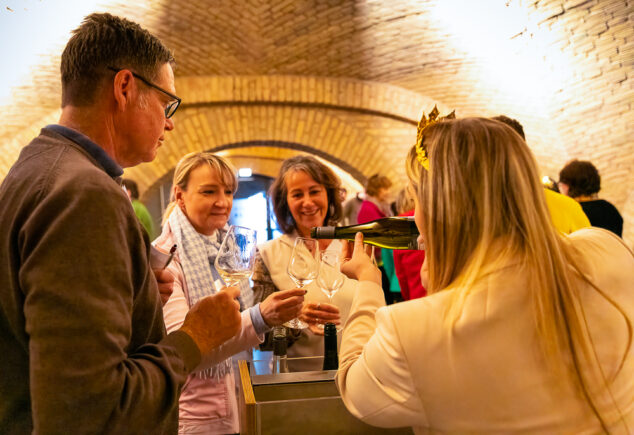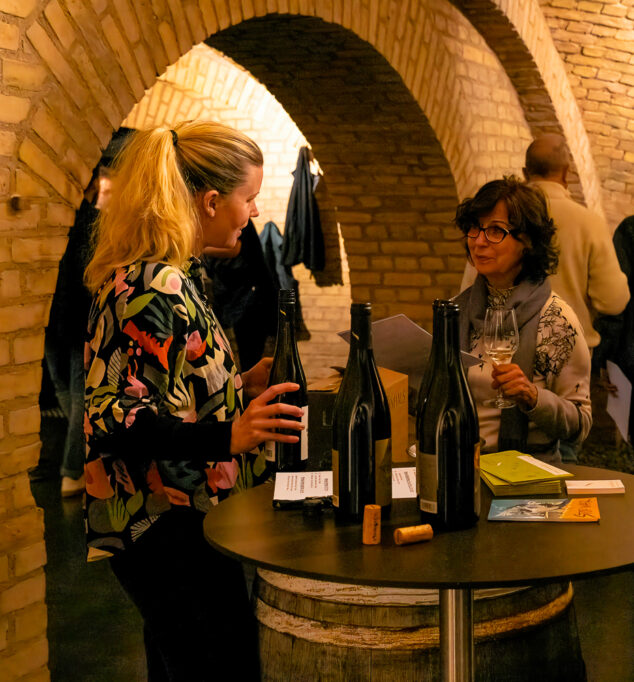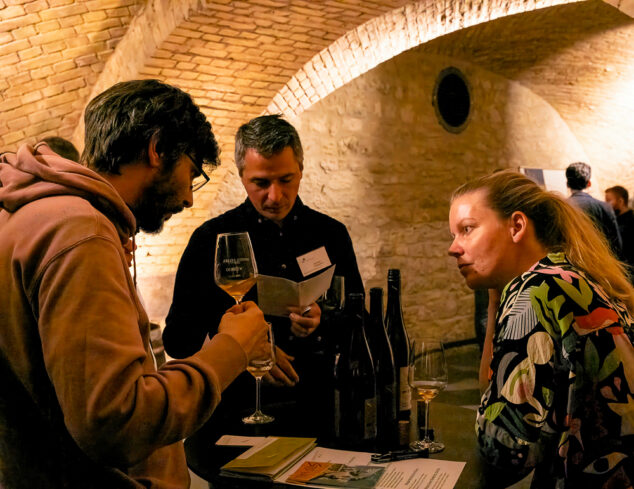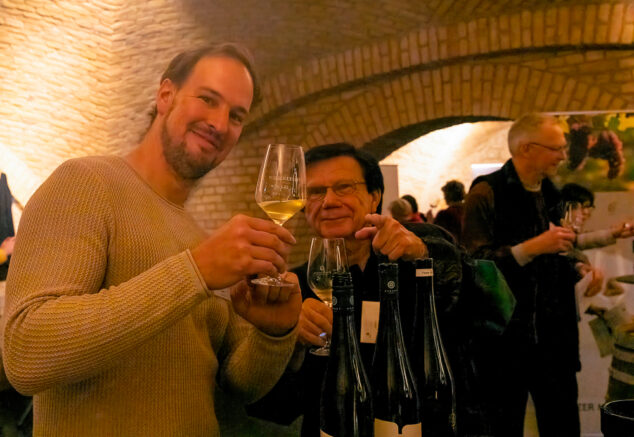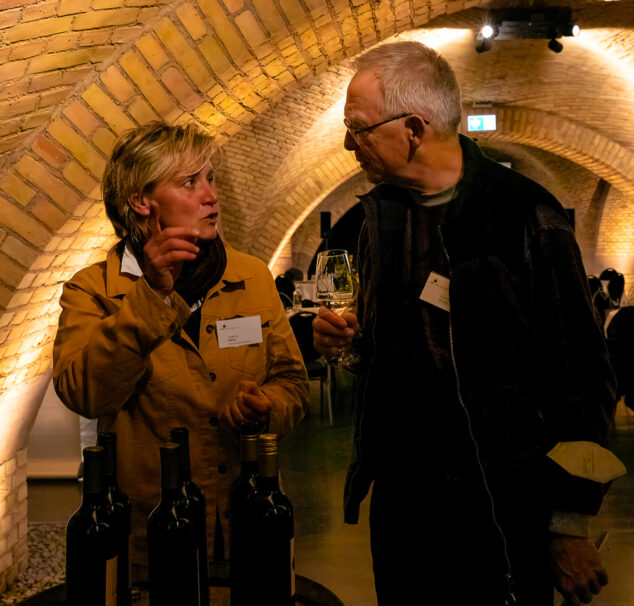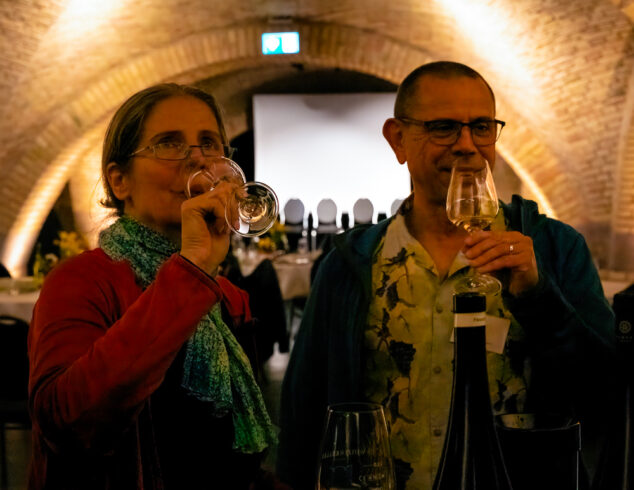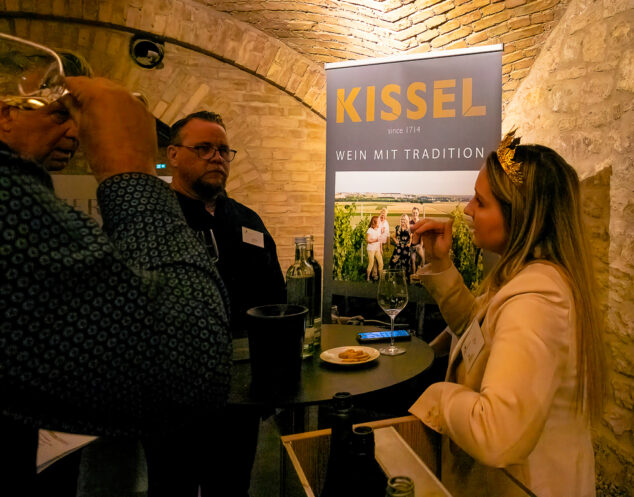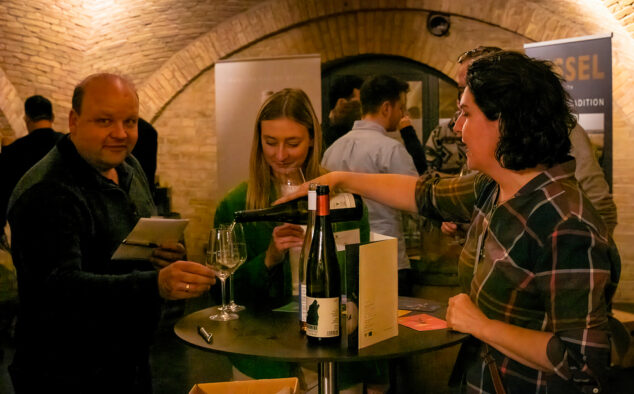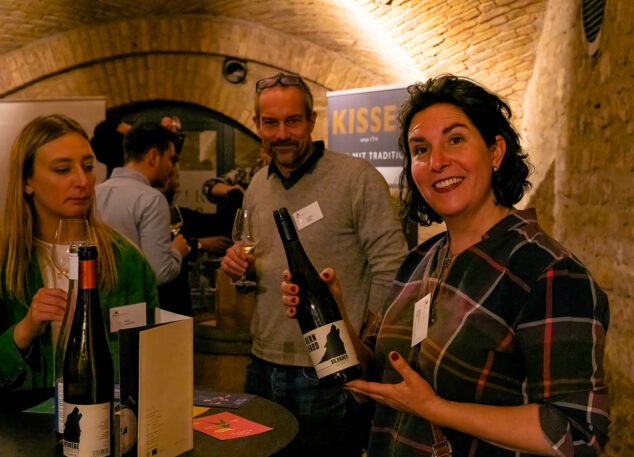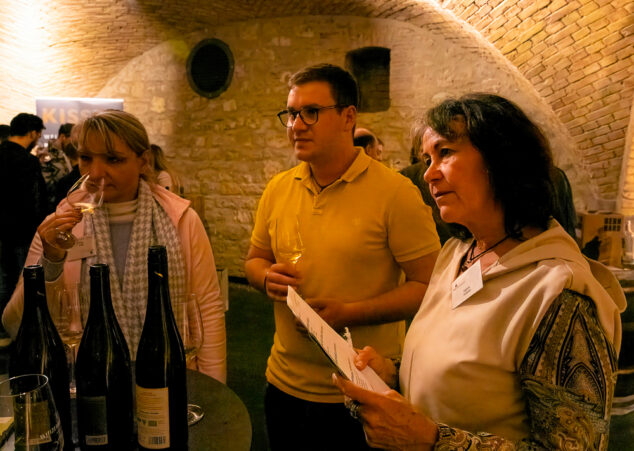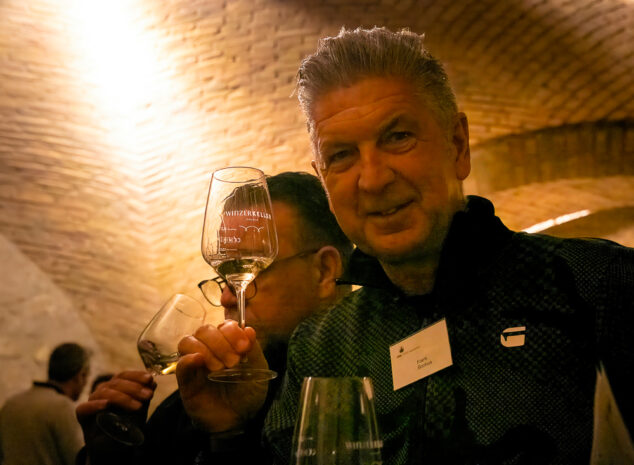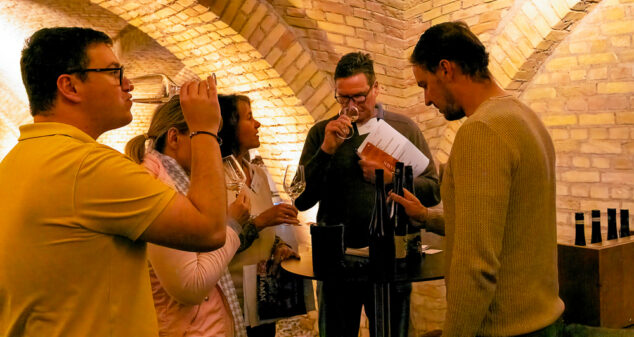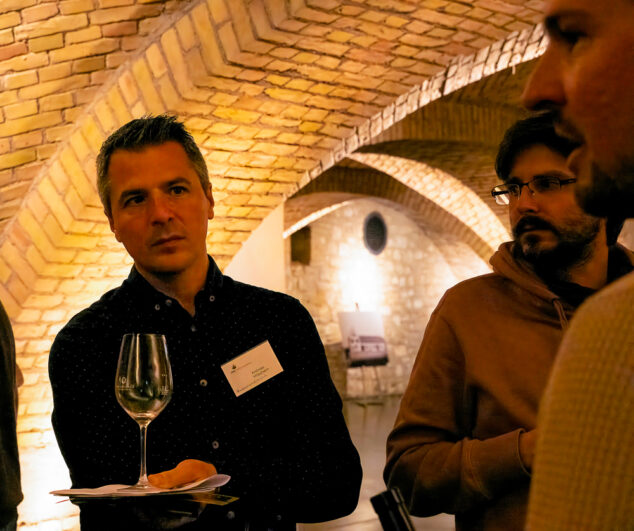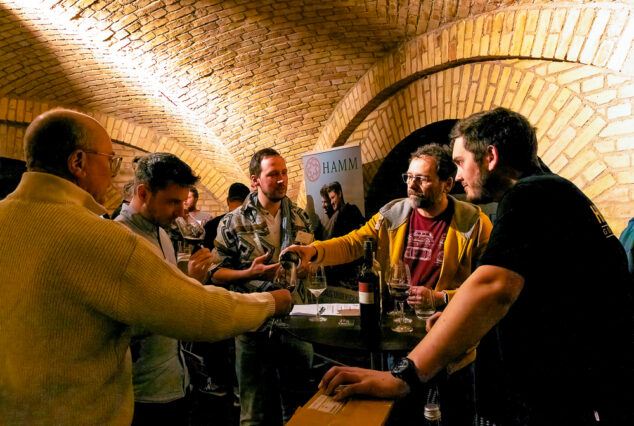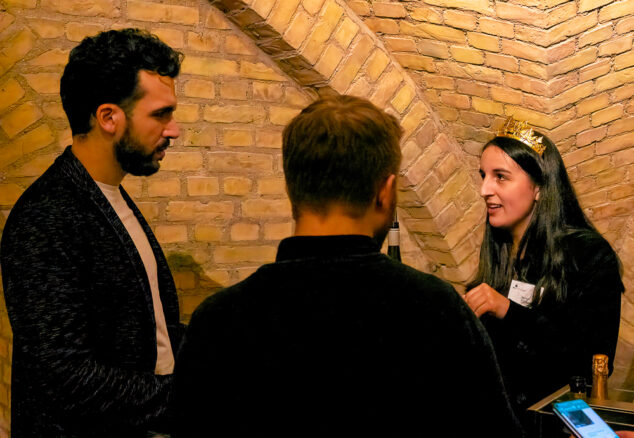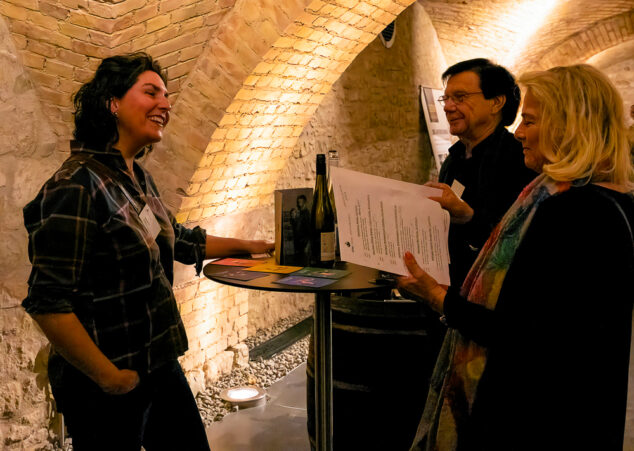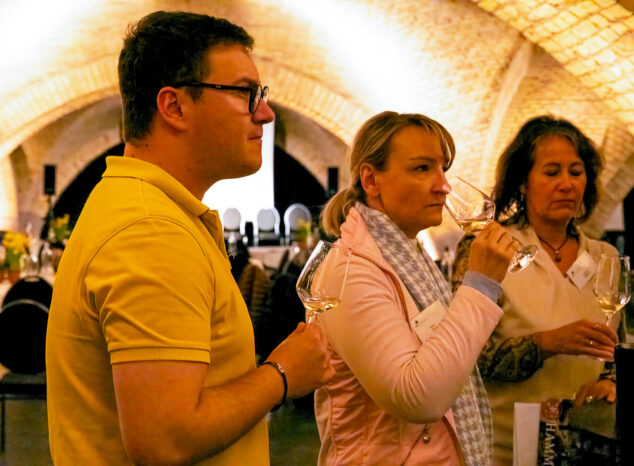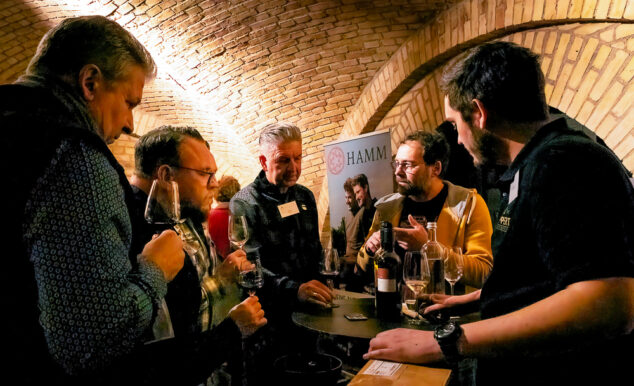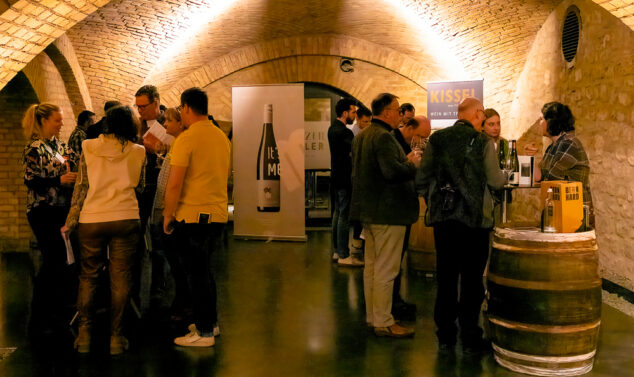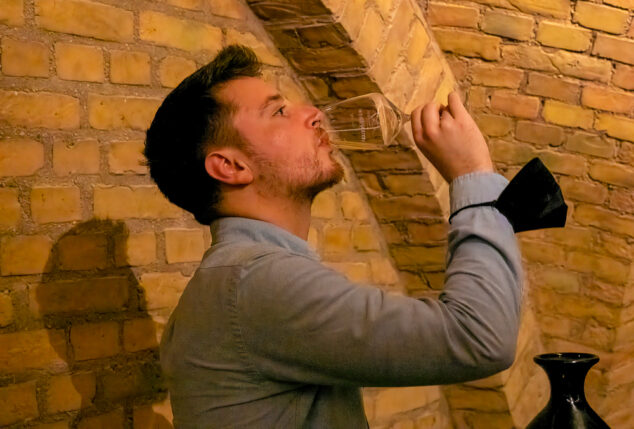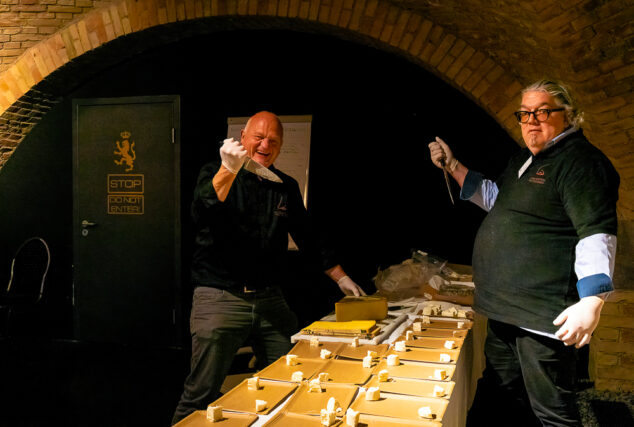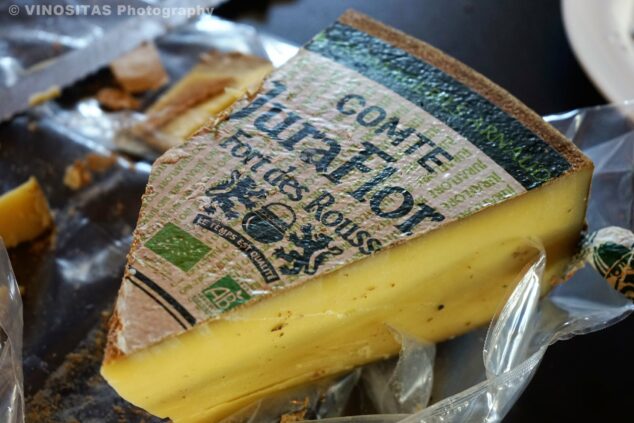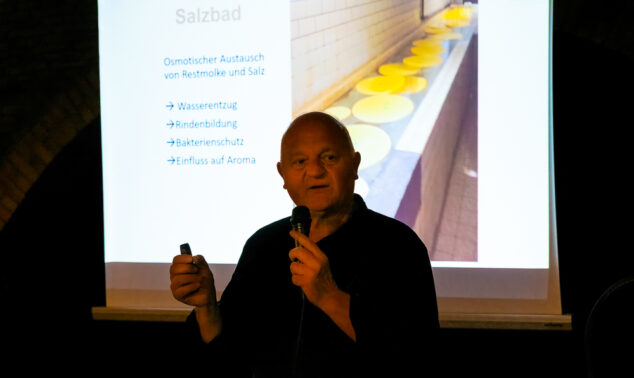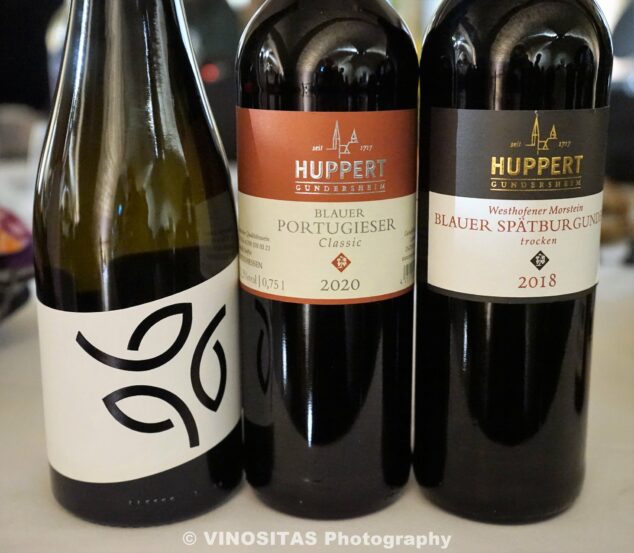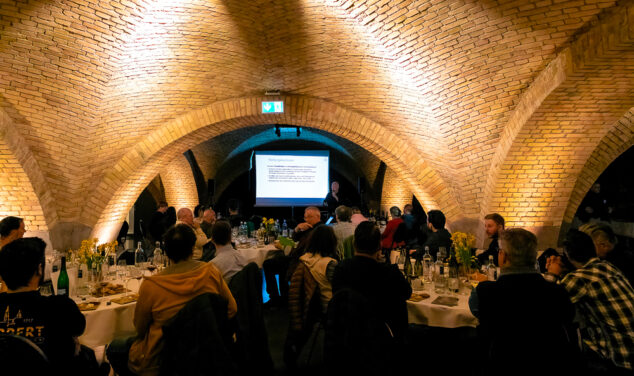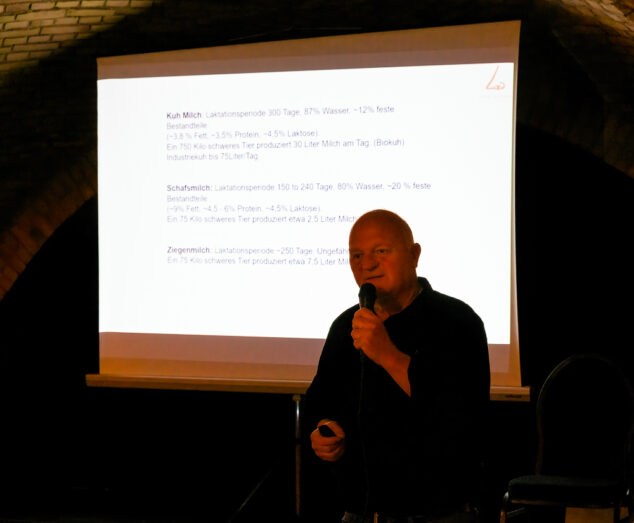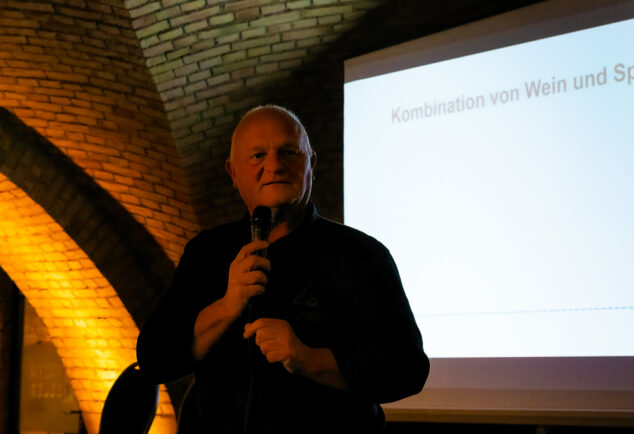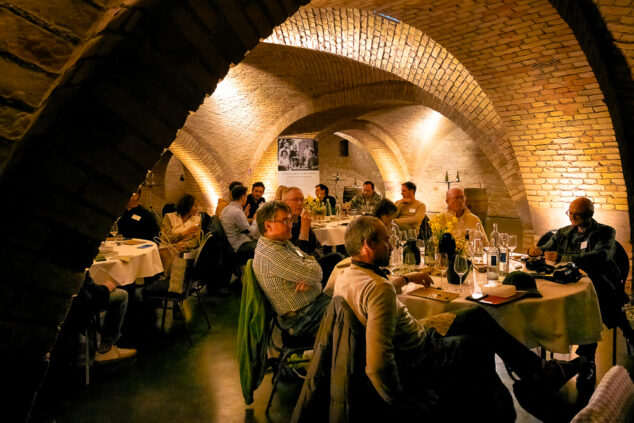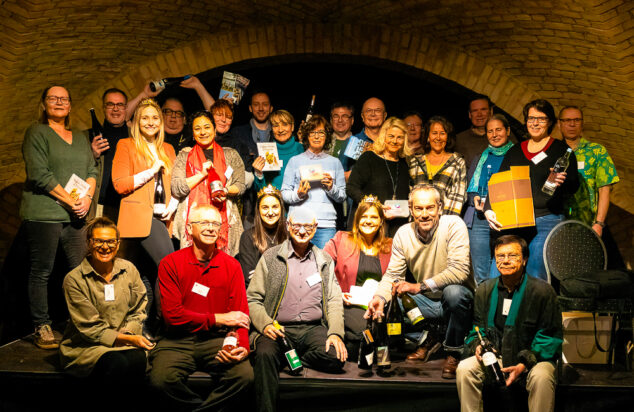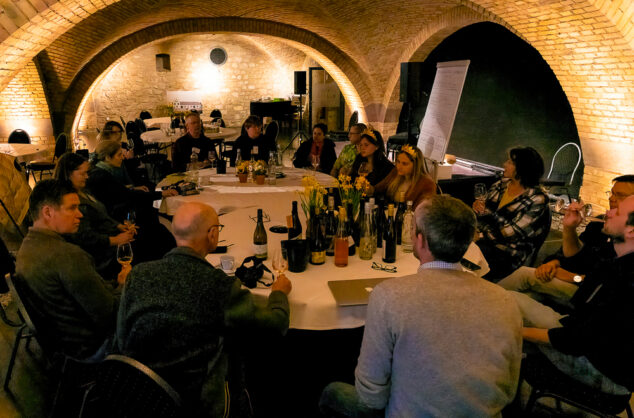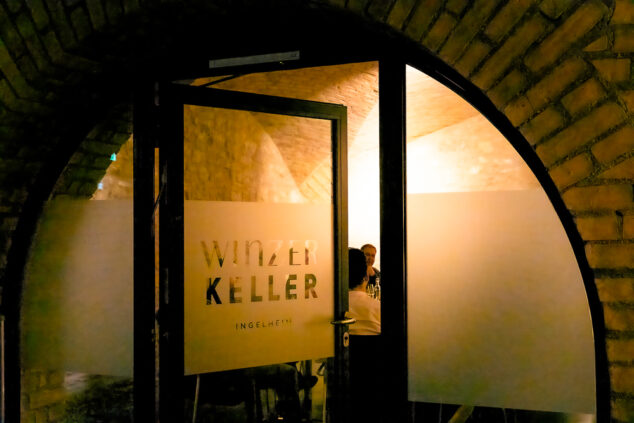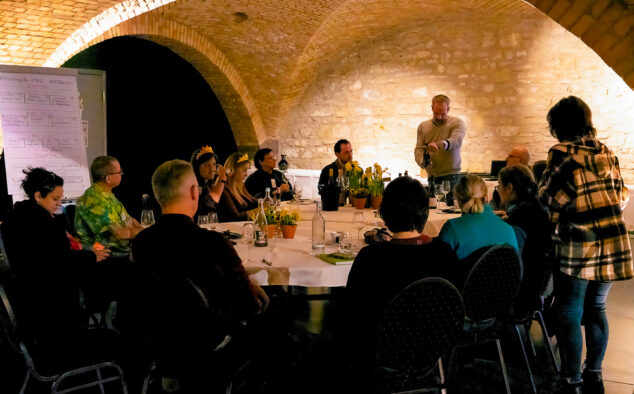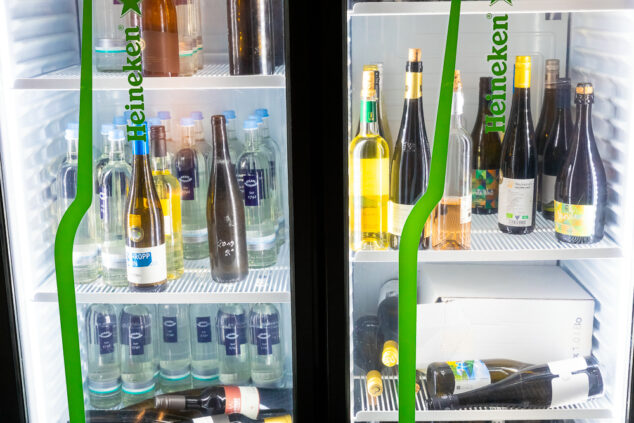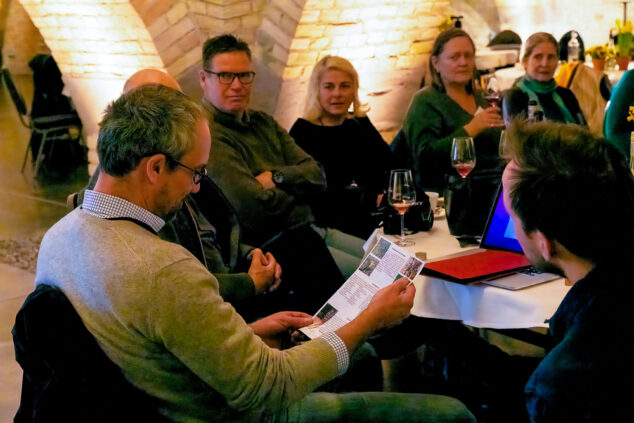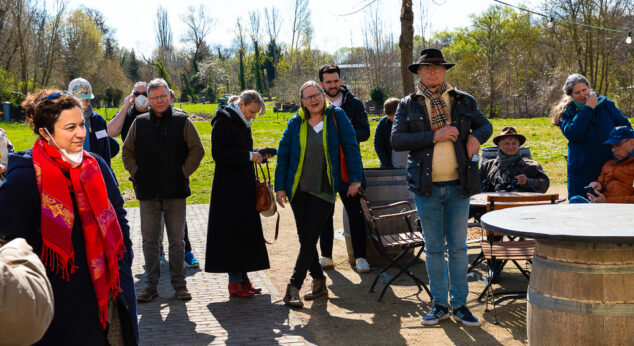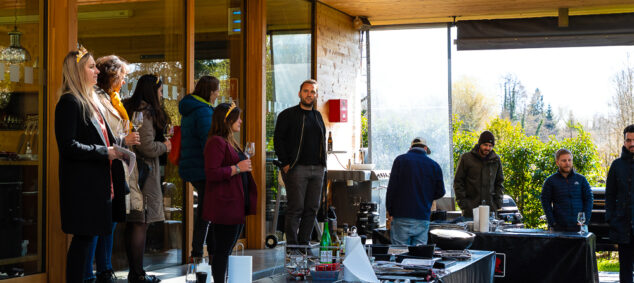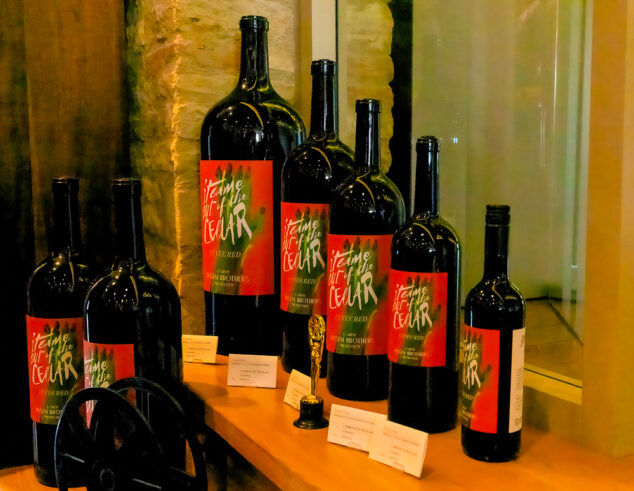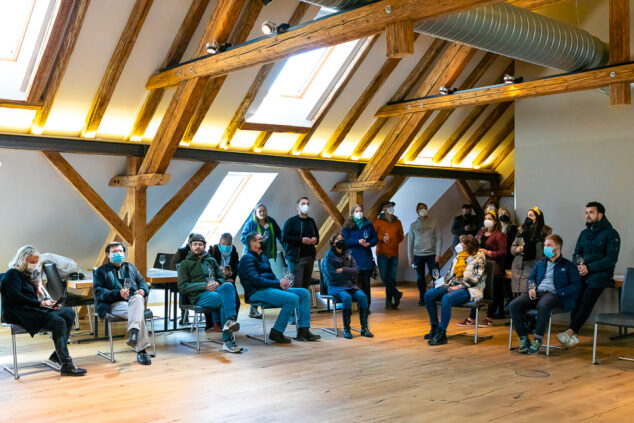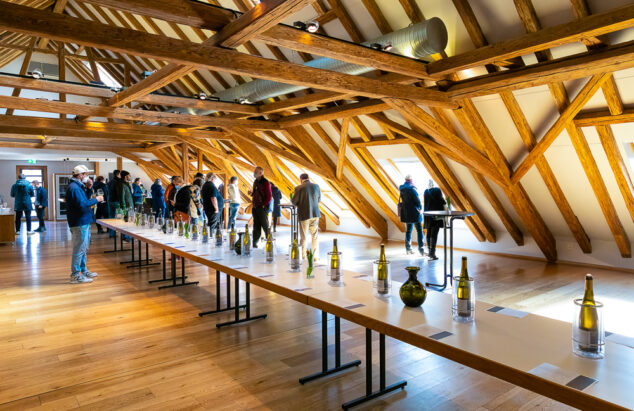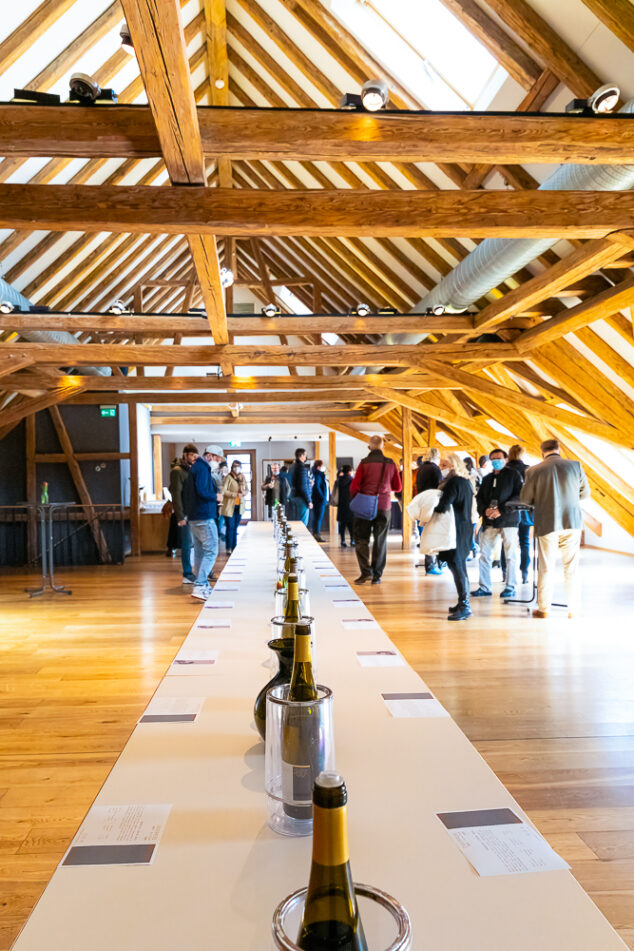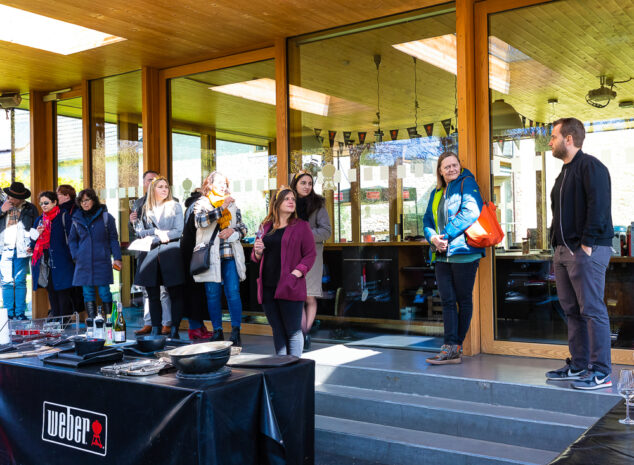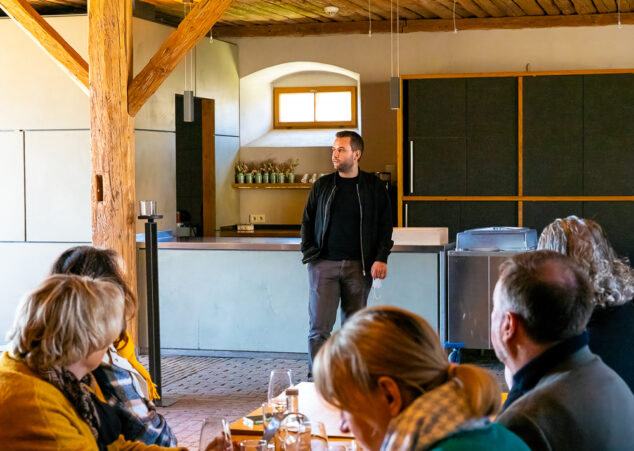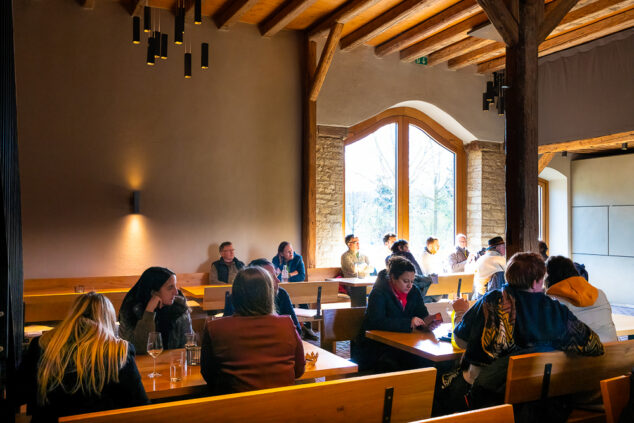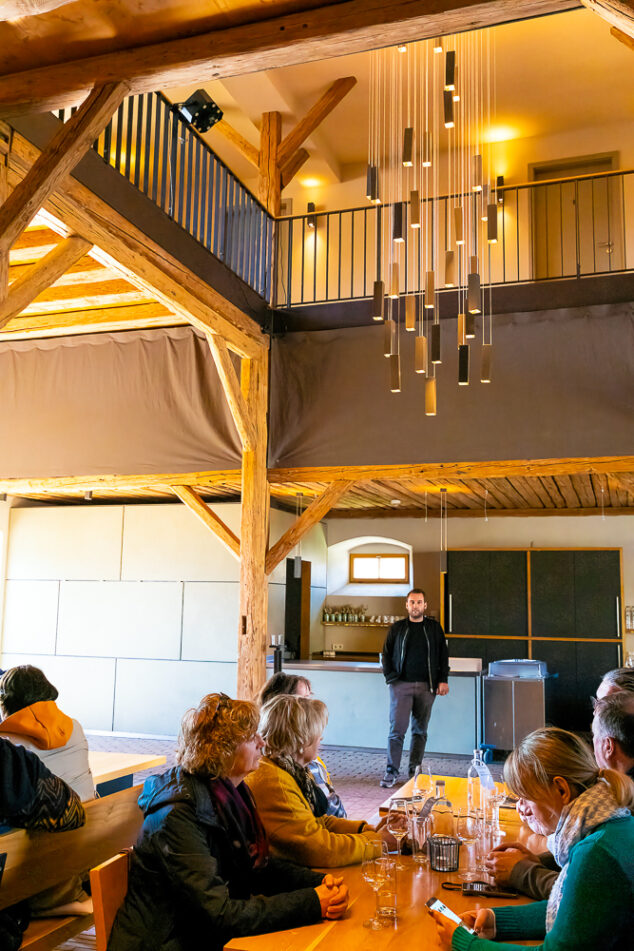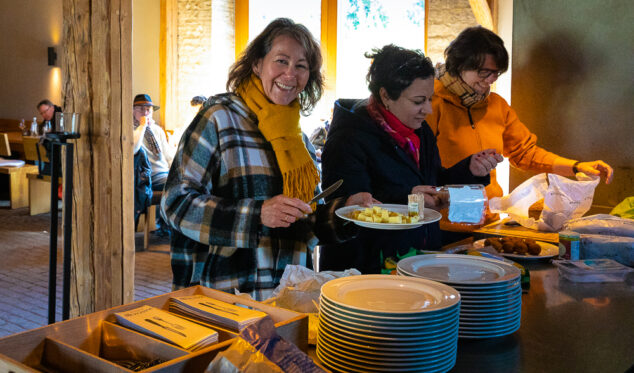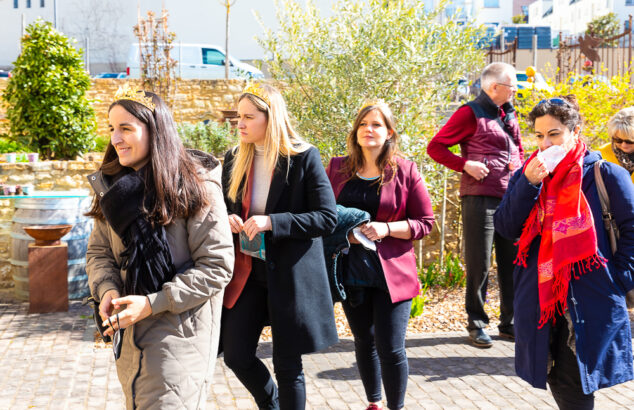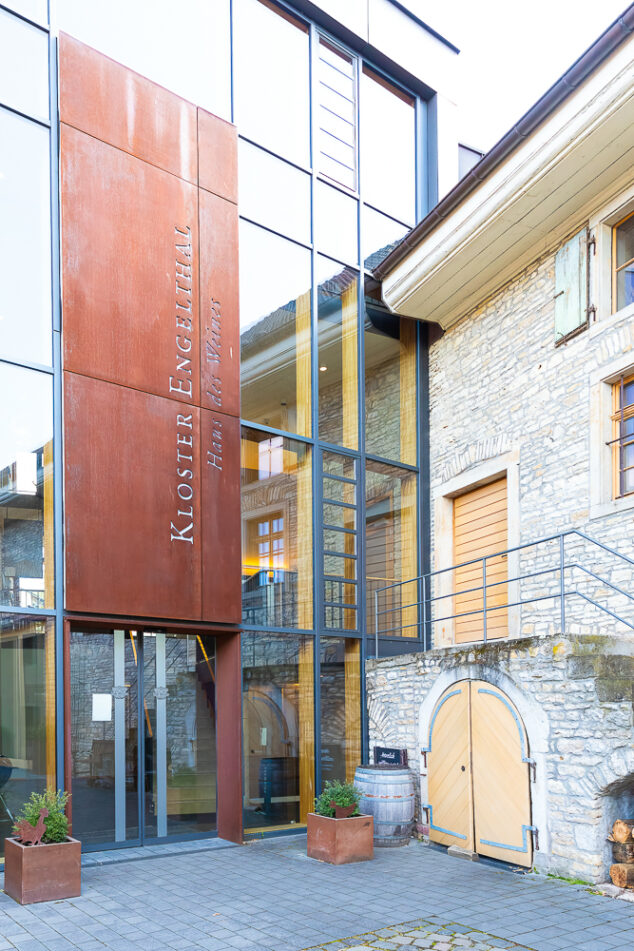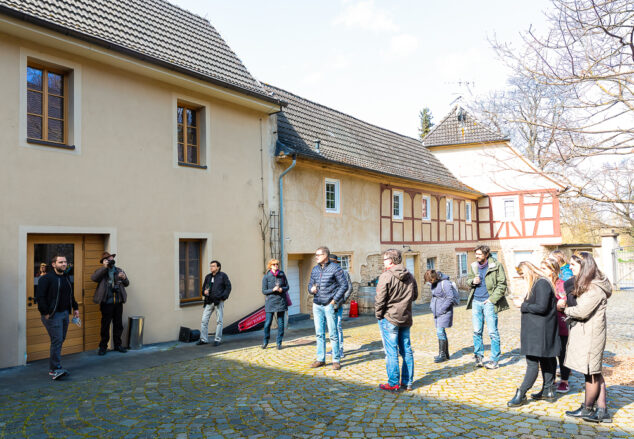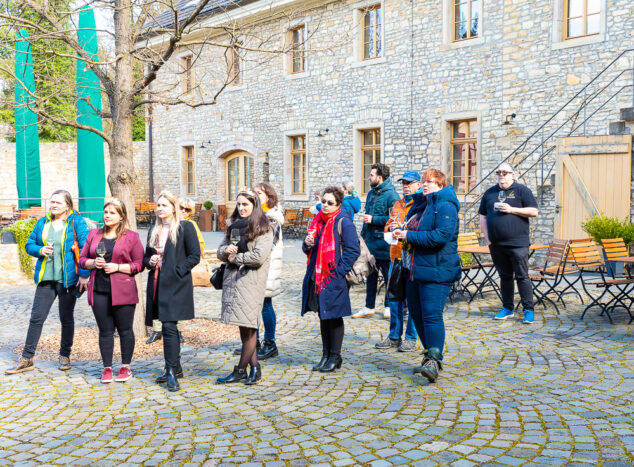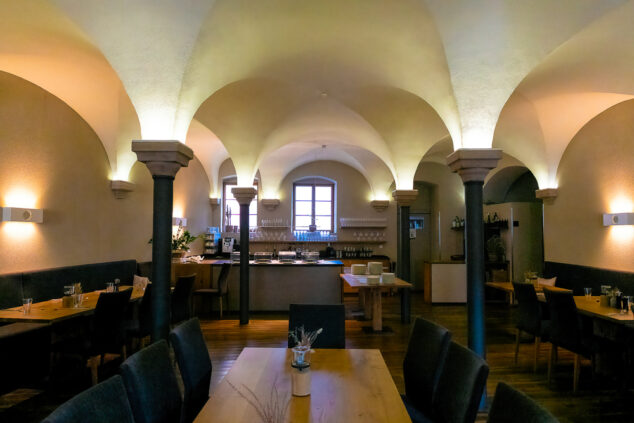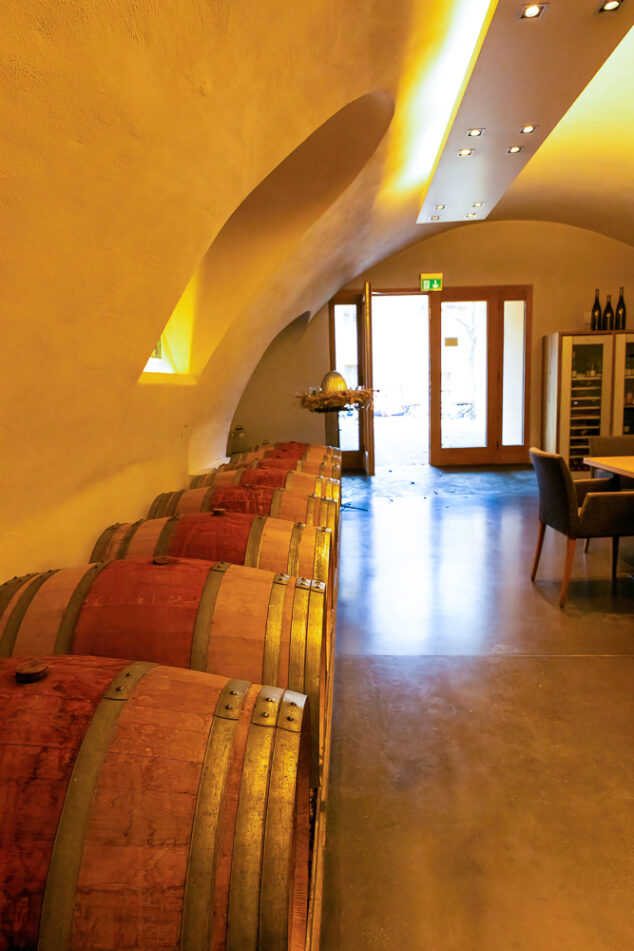From 01 to 03 April, in real “April weather”, almost 60 wine enthusiasts and professionals met at the Winzerkeller in Ingelheim for a lively exchange, information and of course tasting.
What does it take for Vinocamp to take place?
Fortunately, some people have already published a blog about the VCRhh2022 and vividly described their experiences – but when does the planning for such an event actually begin?
I usually plan about half a year in advance, but – and so again this year – in the end it gets tight 😁
The very first step is to find a date that has to be agreed with Rheinhessenwein eV, the location, and the catering. Fortunately, this went quite quickly and everyone pulled together. At a first personal meeting we could already clarify details. Who can support which part and what is roughly needed?! Here I also had a good support on site with the team of the Vinothek, which could pass on the information to the wineries.
Subsequently comes the diligence task to contact and clarify all other sponsors. Who will be there again this time, or who might not be able to support Vinocamp anymore? We actually had only one “failure” this year. You probably didn’t know what the loud rumble meant at the time, but it was the stone that fell from my heart. 😂
A big thank you to all the sponsors for their continued support at this point!
Because, as you surely know, Vinocamp stands and falls with sponsorship. Otherwise, I would have to be market-oriented with the prices and thus we would not be able to get together in the informal and relaxed atmosphere that we all love so much.
This time I had a great support with Jerôme from Bottlestops and we could act as a team, which was very helpful. 🙏
AND … many of you have offered their help with organizing for next time – we will certainly come back to it! Thank you very much!
The prelude on Friday in Ingelheim • covered wagon ride with wintry temperatures
Punctually at 5 p.m., our colorful group of “pre-arrivals”, “old hands” and the „curious” met at the Winzerkeller for a first glass of Secco from the Merl winery, which appropriately welcomed us from the Vinothek, i.e. on behalf of the Ingelheim vintners. Well equipped with further donations of wine from the Vinothek and PIWI International/Germany, the majority found a seat in the covered wagon, which we were kindly sponsored by the city of Ingelheim. A perfect start for our little tour!
We stopped at Jan from the winery Singer-Fischer in Gross-Winternheim, where we got an insight into the Secco preparation and got to know Lena’s hobbyhorse – tasty Rheinhessen sparkling wines!
- Riesling Brut
- Yellow Muskateller Brut
With the first delay at hand, we went back to Ingelheim to the winery Hamm at the Burgkirche where we were allowed to taste the following Ingelheim growths with Martin during a small tour of the cellar:
- Ingelheim Riesling „Akazie“ dry
- Ingelheim Chardonnay dry
The final stop on our little tour was the Mett winery. Jürgen told us vividly how it came about that they had received from a (friendly) French coopers, specially tailored to their wine and individually made barrels.
Things like that can just happen, if you have such friends 😂
In tune with the red wine capital, there were some stout Burgundies to be tasted here:
- Pares Frühburgunder 2019
- Pares Pinot Noir 2018
We only had to walk a short distance to get to the leisurely end of the evening – dinner at the Ingelheimer Winzerkeller. A rounding conclusion!
I was very pleased that many people took advantage of the special offer from IBB in Ingelheim and responsibly stopped driving!
Don’t drink & drive!
Saturdays in the Vault Cellar – the regional Vinocamp in Rheinhessen
With the cold temperatures outside, it was a blessing that we could make ourselves comfortable in the renovated vaulted cellar of the Winzerkeller. After a little refreshment with coffee and tea – I think I may even have seen an open bottle 😉 – we started on time with our program / non-program.
Our group of participants was once again made up of some repeat participants and absolute newcomers who could not imagine anything about the format. There were also winemakers, wine princesses and wine consultants as well as wine lovers and enthusiasts. This mixture is what makes the format so dynamic!
Informative, unconventional and all at eye level with each other! 🥰
The session planning yielded so many great impulses and suggestions that we sometimes even had four sessions running at the same time. 👍
The following topics were covered during the sessions:
- Field blends (Gesichter Satz) from Rheinhessen, Franconia, Rheingau, Mosel & Nahe. A short introduction
- Terroir – What does gU & ggA stand for?
- Sustainability – from a general point of view
- PAR training – What does it mean?
- PIWIs – What is that anyway?
- Places of delight in Rheinhessen – Who knows what?
- Spontaneously fermented & unfiltered. Does it taste good?!
- PIWIs – What about marketing?
- Wine majesties – Is the mandate still up to date?
- Regenerative energies in viticulture
Time flew by and it was time to refresh before the panel discussion started with the following panelists:
- Martin Darting (Wine Systems)
Wine consultant, organizer of various international wine awards, such as the “International Organic Wine Award” & developer of the PAR tasting system - Prof Dr. Gemmrich (DINE Institute)
Development of the Fair Choice certification system - Hanneke Schönhals
Organic winemaker and co-founder of the “Future Wines” initiative - Lara Lambrich
Student who illuminates the topic of sustainability in her bachelor thesis in many different ways - Kristine Bäder
Employee at the Wohlgemuth-Schnürr winery, which has almost 60% PIWI grape varieties in its inventory.
Our goal was to offer such a round of information so that some terms can be clarified and everyone can then gain a little more understanding for themselves. What can be defined as sustainability (this very strained term)? Also some interesting points, like the status of Germany in the international comparison, or which single aspects can have a very big impact, will surely remain in the memory of many of us. Some buzzwords came up during the discussions as well as later on:
- Bottle selection and usage patterns can account for up to 60% of total carbon footprint
- Sustainability includes at least three areas: Ecology, economy & social aspects
- A sustainably produced bottle of wine must actually be offered at a minimum price of 6,50€ (according to a study)
… just to name a few points …
Who thought he had earned a break now, had to be put off, because now came the real fun. The speed tasting with the Rhine-Hessian winemakers!
Wir hatten auch diesmal eine sehr bunte Auswahl an teilnehmenden Weingütern, die uns folgende Weine zum Verkosten mitgebracht hatten:
2020 Chardonnay & Sauvignon Blanc, dry
2020 The Corg, White-Wine-Cuvée / off-dry
2020 Pino Noir ,,Blanc de Noir” / dry
Marleen Ebling Wines, Hofgut Ebling, Schornsheim
./. Sauvignon Blanc Sekt brut
2020 Pinot Blanc & Chardonnay, dry
2020 Riesling Terra Fusca dry
Winery Wohlgemuth-Schnürr, Gundersheim
2021 Sauvignac, dry
2021 Muscaris Feingeist
2020 Cabertin, dry
Selektion Rheinhessen, Rheinhessenwein eV.
2020 Stadecker Lenchen Silvaner dry
Winery Posthof, Doll & Göth (Stadecken-Elsheim)
2020 Westhofener Steingrube Riesling dry
Winery Michel-Pfannebecker (Flomborn)
2019 Sulzheimer Schildberg Portugieser dry
Winery Clemens (Sulzheim)
2021 Silvaner, dry / Ortswein
2020 St. Johanner Scheurebe, dry / Gutswein
2020 „Wilde Hilde“, rosé, dry / Sisters Club
Winery Hamm Burgkirche, Ingelheim
Ingelheimer Sauvignon Blanc, dry / Ortswein
Cabernet Sauvignon & Merlot, off-dry / Gutswein
Spätburgunder, dry, Old Vines / Ortswein
2021 Saphira, trocken / Gutswein
2020 Oranje, Cabernet Blanc / Orange Wine
2020 Biebelnheimer Pinot Noir Löss, dry
2021 Riesling, Siefersheimer Heerkretz / Lagenwein (Barrel sampling)
2020 Riesling, dry / Siefersheimer Ortswein
2020 Gewürztraminer „Ko Tao“, dry / Gutswein
Winery Rolletter, Ingelheim/Groß-Winternheim
2021 Pinot Blanc, dry
2020 Riesling Groß-Winternheim, dry
2019 Pinot Noir Ingelheimer Horn, dry
Winter Huppert, Gundersheim
Signature White Wine Cuvée
Signature Red Wine Cuvée
Lemberger dry
But there was still no time to take a breath, because while one event was still going on, Martin Darting was already preparing the next topic on the program.
The cheese tasting. But anyone who knows Martin knows that this would not be a “normal” tasting 😉
Or who would have served a crisp Riesling with Comté aged for (at least) 17 months?
And also the theory did not miss out, what some perhaps even somewhat overtaxed, then after such a full day still the exciting information on the theory of sensory, rennet, lactic acid for cheese production, compositions & quality levels to learn – there you quite need some perseverance!
We were able to enjoy the following wines and cheeses in combination:
- Naked Friday PetNat Rosé
- Silvaner Selection, Ortswein 2020 – Weingut Gebert
- Blue Portugieser Classic 2020 – Weingut Huppert
- Morstein Blue Pinot Noir dry 2018 (Huppert)
- Kranzberg, Riesling dry – Weingut Wedekind
- Souvignier Gris 2020 dry – Weingut Eva Vollmer
- Pinot Gris Ortswein 2020 dry – Weingut Eppelmann
- Selected grapes Muscaris 2018 – Weingut Abthof
However, now! Around 8 p.m. all program items were completed and after a delicious dinner we let the day come to an end.
Sunday at Vinocamp – with a little bit of sunshine after all
Sleep in on the weekend? This is only possible when there is no Vinocamp! 😂
On time at 09:00 we met again for the already planned sessions from the previous day. This approach turned out to be quite good, as well as offering some sessions on both days, so that as many participants as possible had the chance to attend.
Our sessions on Sunday:
- Field Blends (Gemischter Satz) from Rheinhessen, Franconia, Rheingau, Mosel & Nahe. A short introduction
- PAR education – What can one imagine by it?
- Unsulphured & unchilled – How does the wine change?
- Long-lived wines – Is that also sustainable?!
As the sun was starting to break through, we were all looking forward to the change of venue and all found ourselves at the Wasem Winery from 12pm onwards, for the last stop of this year’s Barcamp.
Philipp welcomed us and after a short greeting sip we started our tour through the historic Engelthal Monastery, which houses not only a winery, but also a restaurant (which hopefully will be open again soon), a vinotheque with tasting opportunity and the Weber Grill Academy.
- Stadecken Pinot Blanc dry
- Sauvignon Blanc dry
Although the winery also had “open house” on that Sunday, we were allowed to make ourselves comfortable for some time in the barn, taste a few wines, and strengthen ourselves for the last time (a bit of the delicious cheese was still there from the night before) and conclude Vinocamp Rheinhessen 2022 with our recap session.
Your feedback was amazing – also the suggestions for topics, which we have already been gathering for the next events, were very exciting.
What else is left to be said? A very big thank you!
A thank you to all participants and especially to the sponsors who made this great event possible again.
When will the next Vinocamp Rheinhessen take place?
After Vinocamp is before Vinocamp!
True to this motto, I have received your request list, where you would like to go next time, what topics you could imagine, what you liked…
We are now going to plan the next Vinocamp Rheinhessen for 2024 and start hunting. Which place will it be? We are just as excited as you are!
To not miss any news, you can best subscribe to the following pages, or follow me on social channels!
Facebook MRKonTour
Instagram MRKonTour
… and I’m really curious to see how far the topic of sustainability will make it into the general public’s consciousness over the next two years!😉
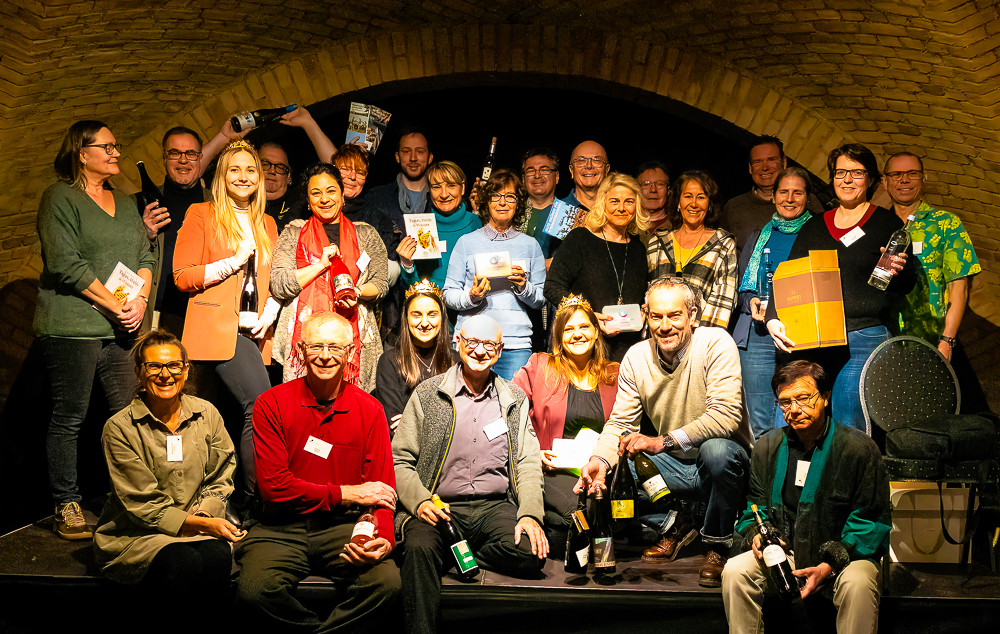
PS
All images, unless otherwise marked, are copyright Marion Rockstroh-Kruft, otherwise Joachim Kaiser Vinositas.
Any use only for private purposes and naming the copyright.
For commercial use please clarify accordingly in advance.


